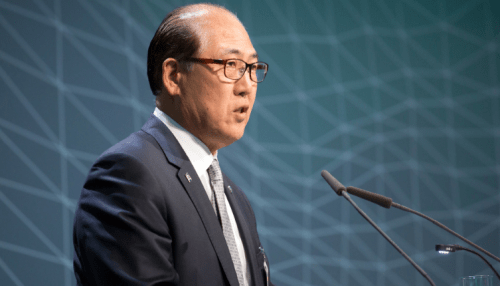
Secretary-General of the International Maritime Organisation (IMO), Kitack Lim, has welcomed the latest initiatives to address the serious issue of piracy and armed robbery in the Gulf of Guinea, including a joint meeting between the government of Nigeria and representatives from organizations representing the oil and shipping industries.
In a statement, Lim said he commended the collaborative efforts to address piracy and armed robbery, which “send a strong and valuable message to the international community with respect to the considerable efforts Nigeria is making to curb piracy and armed robbery against ships in the Gulf of Guinea.” While confirming a recent virtual meeting with the Director General, Nigerian Maritime Administration and Safety Agency (NIMASA), Bashir Jamoh, Lim said, “I would also like to commend the industry’s effort to establish an open dialogue with coastal states and for the work undertaken to develop the Best Management Practices (BMP) for West Africa, and would like to highlight the importance of full application of the measures and reporting procedures contained therein.”
NIMASA, the Nigerian Navy, the oil industry (represented by OCIMF) and the shipping industry (represented by ICS, BIMCO, INTERCARGO, INTERTANKO and the Nigerian Shipowners’ Association) held their first meeting on 28 May to discuss the current situation and how to tackle the piracy problem in the Eastern Gulf of Guinea and the daily threats faced by seafarers.
The number of incidents that were reported to have taken place in the Gulf of Guinea (West Africa) decreased in 2019 by 14 incidents, to 67, down from 81 incidents in 2018.
However, the number of incidents involving kidnapped and missing crew in this region increased from 11 in 2018 to 20 incidents in 2019, in which 151 crew in total were reported kidnapped/missing – the highest number so far on record. The data shows the number of incidents were almost equally split between those occurring in international waters, territorial waters and in the port areas in the region.
IMO works with Member States to develop their capacity to prevent and counter threats to port and maritime security through improved implementation of the international maritime security instruments and guidance.